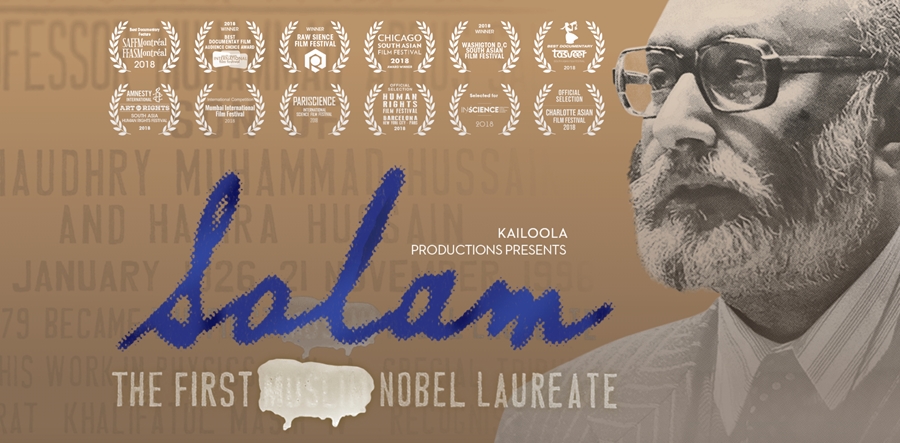FAYETTEVILLE, Ark. – Anand Kamalakar, a Brooklyn-based documentary editor, will present his film Salam at 7 p.m. Thursday, March 7, in the Graduate Education Auditorium at the University of Arkansas.
Kamalakar directed and edited the feature-length documentary about the Nobel Prize-winning Pakistani physicist, Abdus Salam.
The film screening is free and open to the public, and will be followed by a talk with Kamalakar and associate professor Daniel Kennefick, a distinguished historian of science in the Department of Physics of the J. William Fulbright College of Arts and Sciences.
“It’s a dramatic and visually stunning film,” said Padma Viswanathan, associate professor in the Program in Creative Writing and Translation, who is organizing the screening. “The evening as a whole will be of great interest to anyone interested in storytelling, science, politics or religious history.”
The film combines original footage and interviews with archival material to tell the story of a complex figure.
When Salam won the Nobel Prize in 1979, he became the first Pakistani and the fourth South Asian to achieve this distinction. While Salam’s legacy looms large in the world of physics, he is largely overlooked in his home country because of his faith. Salam was neither Sunni nor Shiite, but Ahmadiyya, a sect deemed heretical by mainstream Islam.
“He’s a tragic figure,” said one commentator in the film. “But then, that is his greatness.”
Mahershala Ali, an Ahmadi Muslim, actor in the recent True Detective series and winner of the Best Supporting Actor Oscar for Green Book, said the film is “a vital piece of our history.”
And Nobel Laureate Malala Yousafzai said, “The story of his brilliance needs to be told.”
The film Salam has been an official selection at many prestigious film festivals and won prizes at the Raw Science Film Festival, the Chicago South Asian Film Festival, and others.
For more information, contact Viswanathan at pviswana@uark.edu.
About the J. William Fulbright College of Arts and Sciences: The J. William Fulbright College of Arts and Sciences is the largest and most academically diverse unit on campus with three schools, 16 departments and 43 academic programs and research centers. The college provides the core curriculum for all University of Arkansas students and is named for J. William Fulbright, former university president and longtime U.S. senator.
About the University of Arkansas: The University of Arkansas provides an internationally competitive education for undergraduate and graduate students in more than 200 academic programs. The university contributes new knowledge, economic development, basic and applied research, and creative activity while also providing service to academic and professional disciplines. The Carnegie Foundation classifies the University of Arkansas among only 2.7 percent of universities in America that have the highest level of research activity. U.S. News & World Report ranks the University of Arkansas among its top American public research universities. Founded in 1871, the University of Arkansas comprises 10 colleges and schools and maintains a low student-to-faculty ratio that promotes personal attention and close mentoring.
Topics
Contacts
Andra Parrish Liwag, development writer
Fulbright College of Arts and Sciences
479-575-4393,
liwag@uark.edu
